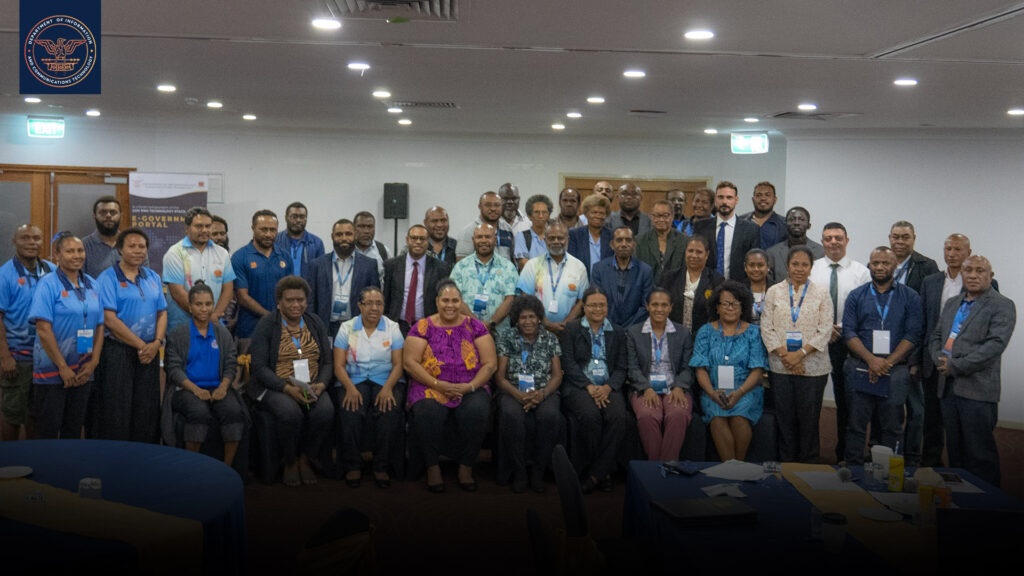Thursday 6 June, 2024

The second day of the Department of Information and Communications Technology’s (DICT) Data Governance Workshop emphasized on the critical need for a unified data governance framework to enhance transparency and decision-making across government agencies.
The event, themed “Data Governance for Transparent Access and Informed Decision Making,” featured insights from various government officials and stakeholders.
DICT Secretary Steven Matainaho set the tone for the discussions by addressing the inefficiencies in the current data collection system, which sees multiple agencies collecting the same data independently.
Mr Matainaho emphasized the “one-touch principle,” advocating for data to be collected once and utilized multiple times to reduce duplication, improve accuracy, and enhance security.
He called for a whole-of-government approach to develop a data governance framework that supports inter-agency collaboration and data sharing.
“The legislation aims to regulate the collection, use, and storage of data across government agencies,” said Matainaho, referencing the upcoming data governance legislation.
He also noted the importance of learning from Singapore’s advancements in AI governance to inform local efforts.
The workshop saw participation from about 48 government agencies, fostering a platform for sharing knowledge and experiences on data governance and protection.
Various speakers underscored the importance of collaboration, coordination, and the use of technology to improve data collection and analysis.
Teacher Service Commission representatives highlighted the challenges in accessing data from the Department of Education, which hinders their mandate.
They called for improved data sharing to manage the over 70,000 teachers in Papua New Guinea more effectively.
Secretary for the Department of Lands and Physical Planning, Benjamin Samson, emphasized the need for a centralized data system to avoid duplication and inefficiencies. He advocated leveraging technology, like mobile devices, for more efficient data collection and analysis, crucial for sustainable development.
The Internal Revenue Commission (IRC) and the Department of Provincial and Local Level Government Affairs also stressed the importance of change management and collaboration in enhancing data management processes.
Lorna McPherson from Digicel underscored the necessity of collaboration between government and private sectors, particularly in the registration of SIM cards to monitor crime and ensure compliance with global standards.
First Assistant Secretary of the ICT Division at the Department of Finance, Edward Bero, praised DICT’s leadership in driving digital transformation.
He highlighted the department’s dependency on accurate data through systems like the ALESCO Payroll and Integrated Financial Management System (IFMS), which are critical for operational transparency.
Mr Bero also pointed out challenges such as cybersecurity issues, power outages, and inadequate remuneration structures, calling for the Department of Personnel Management to reassess roles and compensation.
The workshop concluded with remarks from DICT Deputy Flierl Shongol, who reiterated the significance of data as a national asset and the need for alignment and coordination in data governance practices.
As the two-day workshop ended, it was shared focus of all participating organizations that effective data governance is crucial for the country’s digital transformation goals, requiring continuous collaboration and innovative approaches across all sectors of government and industry.
DICT hosted the Data Governance Workshop from 4 -5 June 2024, at the Holiday Inn, Port Moresby.